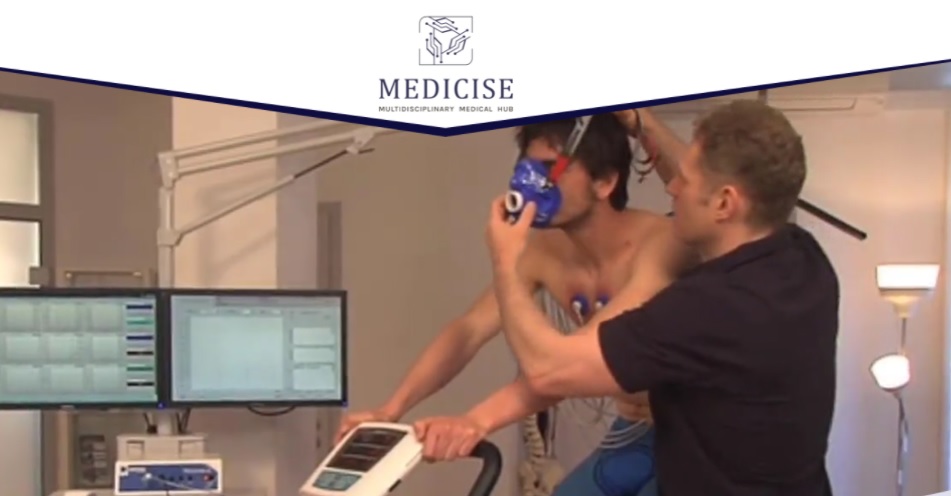South African startup Medicise has established a cutting-edge medical facility in Somerset West in the Western Cape, which can measure and monitor a wide range of heart and lung functions and then present a full clinical picture through complex diagnostic algorithms.
Medicise, which claims to be the only such facility in Africa, operates highly specialised equipment to measure and monitor a wide range of heart and lung functions, from resting to exertion. Through complex diagnostic algorithms, these data points are then linked, integrated, evaluated and presented as a clinical “picture”.
Once a baseline is established, supervised exercise, exertion and resting will show anomalies and areas of concern that other techniques that focus on one or only a few aspects will not pick up, meaning the Medicise process provides far greater and meaningful diagnostic insights than were possible before.
“The science behind this has been proven over many years, but only now, through technology, has its value been greatly enhanced,” Johann Els, the company’s executive director, told Disrupt Africa.
“The application of the technology provides an invaluable instrument for clinical diagnosis. The assessments can be used for medical care and treatment by virtually every general and specialist medical discipline.”
In building its technology, Medicise compiled and studied the last five decades of literature to make informed decisions on what is needed if physical exercise is to be included in part of the treatment intervention within chronic disease management.
The company created a unique prototype of infrastructure to allow data to be gathered of each individual.
“This set of data has to provide a comprehensive overview for any medical practitioner to assist in optimising clinical decision making. Medical practitioners specialise in one segment of healthcare, and are in need of additional clinical information,” Els said.
The seed of Medicise was planted back in 2004, when Els was studying at Stellenbosch University. After further years of studying and application in clinical practice, he concluded that comprehensive infrastructure to restore oxygen consumption within chronic disease management did not truly exist.
“Once a patient is trapped within the chronic sick care model, a downward spiral is created and patients cannot regain their health due to a reliance on pills which causes an unintended consequence of transferring responsibility away from patient behaviour and onto molecular chemistry,” he said.
The literature study began in 2016, and Medicise was incorporated in 2019. El said while the global healthcare industry was built upon a reactive model, his company wanted to rather provide a proactive one.
“The company decided to develop a business model that is applicable for the global market. This allows the company to scale quickly and provide the current reactive model a proactive dataset. The gap in the market is vast as other roleplayers linked with the health insurance industry, like insurance providers, are in dire need of an intervention to lower healthcare costs since the global COVID-19 pandemic,” he said.
“The only data set available for the insurance sector is diagnostic data – which is a reactive approach. Medicise has created a new sub-clinical dataset which includes the clinical dataset as well. This allows Medicise to assist the global market with early identification of clinical conditions and prevent costly reactive interventions that does not restore health.”
The only other competitors in the market that Els can think of are the Cooper Aerobic Center in Dallas, United States (US) and cardiac clinics in Europe. In Africa, there is nothing, and with seed funding Medicise has developed Africa’s first comprehensive facility to provide sub-clinical data for chronic disease analytics.
Launched in May 2020, the facility has already had a positive impact, with patients starting to show clinical evidence of regaining health. The newly appointed dean of the medical faculty at Stellenbosch University is now starting to use Medicise as a service provider for pre-operative assessments of living donors and patients receiving transplant surgery, and Els says uptake has been strong.
“Since we started as a startup during a global pandemic while trying to introduce a new concept to the world – asking patients and health insurance providers to pay for health services within a proactive model – the uptake has been astounding. Patients are starting to see the clinical results and are requesting their medical doctors for follow-up referrals. Patients are experiencing that health insurance providers are covering the services due to the clinical improvement shown after participation within the Medicise intervention plans,” he said.
“Specialist physicians are now starting to use the clinical and sub-clinical data of their patients and are starting to see the improvements. This naturally leads to more referrals of patients, which affects revenue generation.”
So far, so good, then. The startup’s short-term plans are to expand its services into various markets within the Western Cape, while longer-term it has national expansion ambitions.


